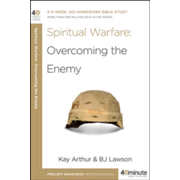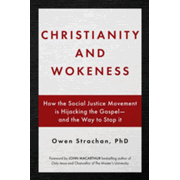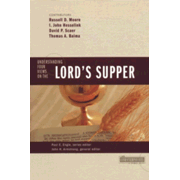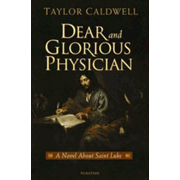 OUR READING for the Thirteenth Sunday after Pentecost comes
to us from the scribal pen of Saint Luke. The lesson offered describes the
purpose and priorities for Christian discipleship…
OUR READING for the Thirteenth Sunday after Pentecost comes
to us from the scribal pen of Saint Luke. The lesson offered describes the
purpose and priorities for Christian discipleship…
Now great multitudes
accompanied him (Jesus); and he turned and said to them, "If any one comes
to me and does not hate his own father and mother and wife and children and
brothers and sisters, yes, and even his own life, he cannot be my
disciple.
Whoever does not bear his own cross and come
after me, cannot be my disciple. For which of you, desiring to build a tower,
does not first sit down and count the cost, whether he has enough to complete
it? Otherwise, when he has laid a foundation, and is not able to finish, all
who see it begin to mock him, saying, 'This man began to build, and was not
able to finish.'
Or what king, going to encounter another king
in war, will not sit down first and take counsel whether he is able with ten
thousand to meet him who comes against him with twenty thousand? And if not, while the other is yet a great
way off, he sends an embassy and asks terms of peace.
So therefore, whoever of you does not renounce
all that he has cannot be my disciple.
"Salt is good; but if salt has lost its taste, how shall its saltiness
be restored? It is fit neither for the
land nor for the dunghill; men throw it away. He who has ears to hear, let him
hear." (Luke 14:25-35)
Love-Hate?
According to the scriptural witness, our Lord laid down some
very serious conditions upon those who would be his disciples. In the midst of the
communities located in the Roman world in the late first century, our
author related that Jesus told his audience those who wish to be disciples
must “hate” an unbelieving wife, or family and friends. However we must be very
cautious here, for to say that our Lord advocates hate would go against his
teachings. Surely we are admonished to “Love your neighbor as yourself.” Would
our Lord be hypocritical then in this teaching? “No”, I dare say.
To be sure, in using the Greek
word, “miseo”, we must consider that Luke was deliberately depicting Jesus as
speaking hyperbolic-ally… in other words dramatically indicating that we should have priorities against sin..,
and we must love God more than all.
To examine this
mandate further, we find that here it is apparent that both Luke and Matthew
used the same source materials. We find that Matthew warned all listeners of the
divisive nature of the gospel message (Matthew 10:37-38). However, Matthew’s message was
given to a community in Syria, far removed from the communities of Luke and thus not
delivered to those infant Christian churches undergoing the same worldly forces. Thus Matthew
certainly did not radicalize "miseo" in relating the message as Luke had related the same.
The profound implication is that we see the household schism within the synagogues was more highly pronounced
in this Lukan discourse. This I believe was caused by the dynamics between the Church and
the tighter rule of Rome throughout the provinces of Asia-Minor. We must contextualize this reading variance when we compare the gospels.
Consequently, we now rightly ask what is
apparently the societal undercurrents within Lukan communities that caused such terse language. What was present in worldly shadows that may not have been in Matthew’s church? What caused that harsher word to emerge... even though
both gospels were penned during the same decade of writing and the scribes used the same sources?
For Luke’s churches,
as we read here… I contend that the
disciples of Christ were not all being crucified, but most apostles had already met their fate… and others were in great danger. With rising societal tumult occurring, therefore, all
Christians were being warned by Luke that they must be prepared to bear ostracism and the cross. If
need be, they were to bear these burdens dutifully.
Jesus was thus
portrayed by Luke as bidding his disciples to count on carrying salvation’s message
over against those who would hatefully harm them. By recording his message
in that way, Luke also warns we who are in the Church today, that even we need to consider the possible impact of
our faith expression. We need to embrace perils that may arise through our expressing the gospel. As we see from recent turmoil against Christians around the world, we know this to be true.
You see, I firmly contend that the text
teaches us that if we wish to be disciples, we need to be careful not to grow
slack in our profession of faith. We need to consider the cross... and yet not be
afraid...for salvation comes through the cross. Keep in mind the separation from the world that it cleaves. Jesus expected this behavior, and the Spirit carried this to Luke's writer and forwards this into our own day.
 |
Spiritual Warfare: Overcoming the Enemy |
Truth Frees!
We see that Jesus’ words as related by Luke were harshly aimed. They reproved disciples who ministered in the Jewish nation of Israel... and also in the breadth
of Roman Empire. These both were chided somewhat for their unwillingness to
dismiss those persons who neglect of the offer of Christ's grace, and to move toward witnessing beyond their immediate circumstances.
For Luke's writer, you see,
knew many had already walked the path of faith. He was most likely aware that James and other apostles had already been martyred. Indeed
the word “hate” revealed the depth of backwardness found in the Jewish synagogue populace,
and their harsh legalistic traditions that hindered Christian proclamation. Late first century rabbinical documents we've retrieved testify to that radical resistance.
In coming times then,
we too may find ourselves in a place where we must be willing to stamp our
feet harshly against those who remain fearsome and closed to the gospel call. As the Church we may also feel the ingratitude to God expressed by those who reject the
gospel, and show contempt upon belief in the kingdom of God poured out through Christ. Surely, these
issues yet provoke them. The sinful seemingly did so hate our Savior during his earthly life... and thus are still a
stumbling block for us.
Consider this! According to the
historical record of Luke communities, the apostolic commission was being adapted
by Paul and others to bring the Gentiles into the faith, delivering the gospel message to them when so many of
the Hebrew family had refused the bounteous and graceful offer.
Therefore, I
consider that the term made in hyperbolic speech here by Luke... was clearly presented
for emphasis. I offer that our author wished to highlight the division and forward the Church into a wider ethnic witness
in order spread the gospel of Christ. Consequently, in Luke we meet an
emotional, tearful stomping of dust and ashes. The author stressed that
Jesus firmly instructed disciples not to waste time looking back upon community, family,
or friends that reject the good news. Simply pray for them and ask God for blessings upon them.
Let us yet be reminded! The gospel message poured out by the Spirit’s power is not
made in vain. While some persons shall reject the Way... and may choose to remain
in sinfulness... others will thankfully believe! The sinful, lowly and poor in spirit shall
turn and be forgiven... and welcomed into the kingdom. When this happens, in Christ they shall become truly the rich and the great.
It is in this way that God’s kingdom shall at last be filled.
Let's admit it! Jesus’
admonition to us is not easy to hear, especially in light of our natural, human love for those
who are close to us. We must be prepared, however, to center our gospel proclamation to those
who may respond more quickly to the Spirit. Remember! Proclaim in focused fashion... yet pray for all! This sums up the
warning that we, as the salt of the redeemed earth... are called to not linger.










